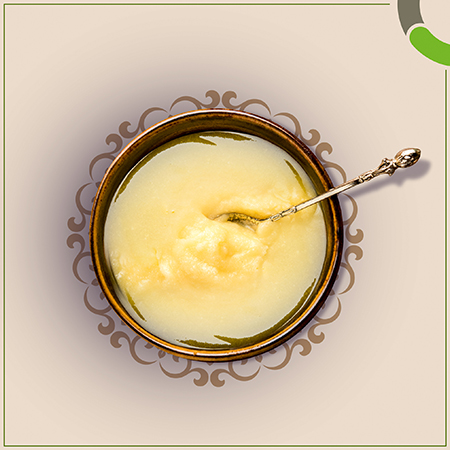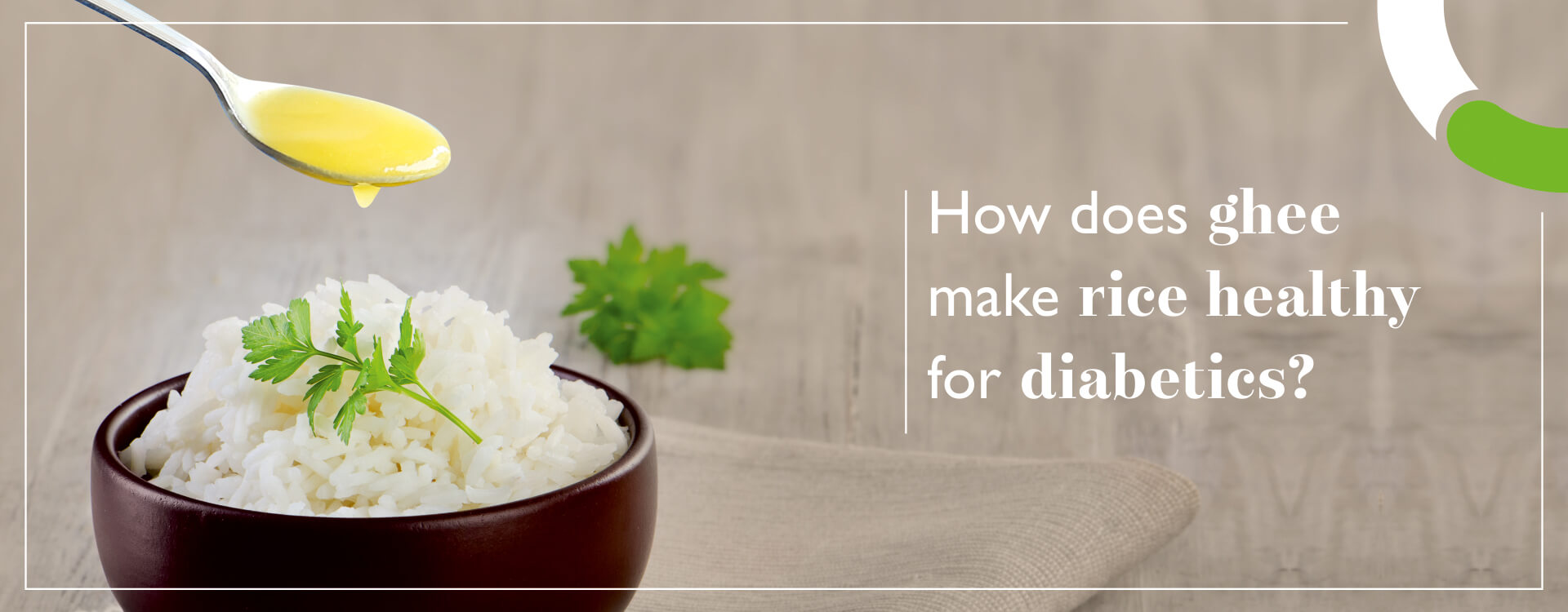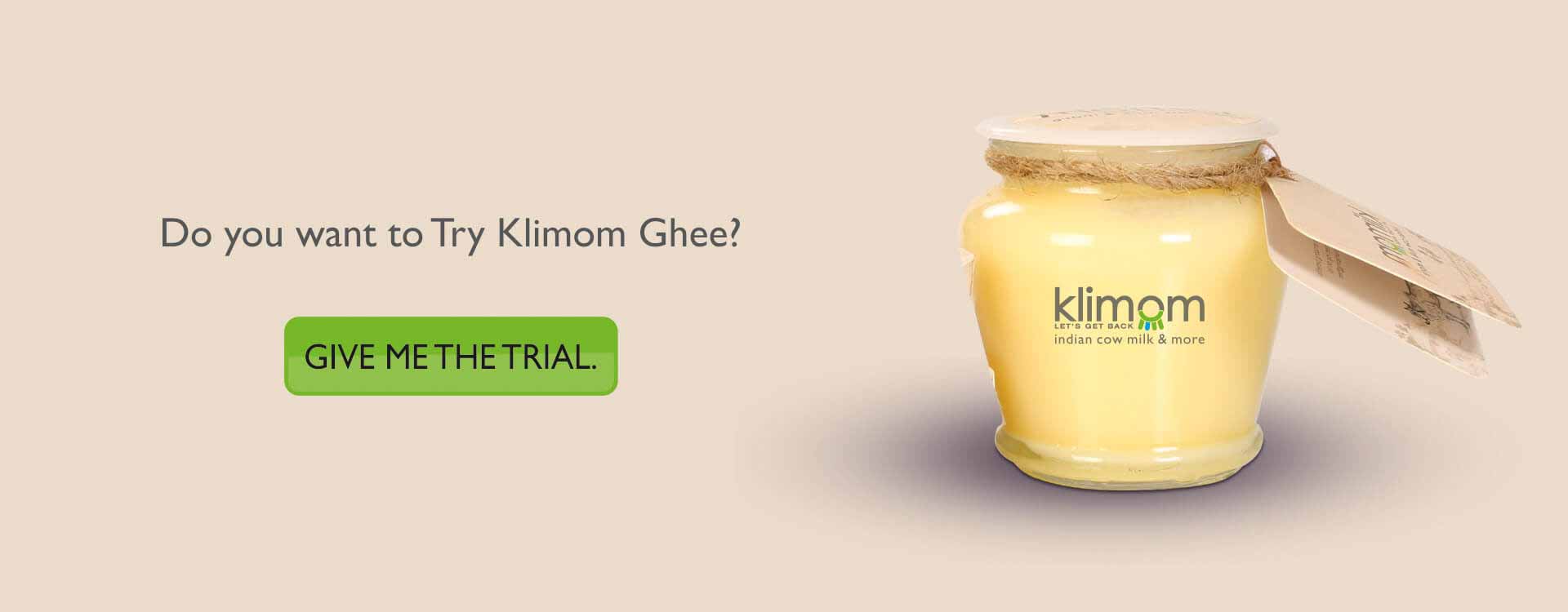Cow Ghee and Diabetes


Medical specialists are alarmed at the epidemic proportions that diabetes has reached as a disease. It is estimated that in developing countries the incidence of diabetes will rise to three-fourth proportion for the next millennium and India is expected to have the highest number of people suffering from diabetes.
What we eat has an impact on our blood sugar levels and hence diabetics have to be particularly cautious of their dietary choices. It would surprise you that those, ‘healthy cooking oils’ as you see advertised on television, are actually doing more harm than good.
In India, we have changed our traditional cooking medium, ghee, to these advocated, well-advertised `heart-friendly’ oils. “We have used these (ghee) in India for centuries and we have had no problem. I firmly believe that the present epidemics of diabetes, heart disease and some cancers are possibly the result of the present high intake of these undesirable oils,” writes a doctor in the Journal of Diabetic Association of India.
Cooking mediums, according to diabetologists, namely derived from safflower, sunflower, corn, trill, soybean or groundnut are undesirable oils.Let’s see how these oils can be damaging.
Our body’s full requirement of polyunsaturated fat (PUFA) 6, is met entirely by the normal Indian diet – cereals, pulses and vegetables – without any oil. What the diet is deficient in, is PUFA 3.
PUFA 3 fats are critical for the development of child in the womb during pregnancy, growth and development of children, for eyes and brain immune function. Their deficiency increases the risk of cancer, heart disease, high blood pressure, diabetes, eye problems, some skin conditions and immune disorders.
The optimal ratio is four of PUFA-6 to one of PUFA-3.
What happens when we use present-day oils in our food? The PUFA 6 to PUFA 3 ratio goes beyond 30. Any ratio above ten is unhealthy.
So, what’s the best option? Ghee!
Ghee is clarified butter which has been cooked and processed longer to take away all the moisture. The milk solids get caramelized (browned) in the fat and are strained out. Ghee has long been used as a natural medicinal agent that protects us against many diseases. Let’s take a look at what makes it a great choice for diabetics.
Ghee has low carbohydrate, and therefore it works well for diabetics as they are recommended a low carbs diet. Ghee is a source of healthy fat and it has Vitamin K2 which helps our body to absorb necessary vitamins that our foods contain. This further helps in regulating blood sugar level, enabling a better management of the diabetes.
Macrobiotic Nutritionists and Health Coaches say that ghee works like a medicine for diabetics because the fatty acids in ghee help in metabolising and balancing high blood sugar. When ghee is added to rice, it is easy on the diabetics as it helps them to digest the sugar from rice effectively. Ideally speaking, ghee made of milk from desi cows offers maximum benefits.

Ghee has benefits aplenty, which can help diabetics in the following ways:
- The right amount of ghee in your daily diet regulates the smooth functioning of the digestive system, and will resolve problems associated with constipation, if any.
- As mentioned earlier as well, the fats in ghee help in absorbing the nutrients from the food that you eat. This helps in diabetes management as it boosts the immunity system of the body.
- Cardiovascular diseases are a common complication in diabetes patients. The presence of linoleic acid in ghee helps to reduce the possibilities of these diseases.
- The right consumption of ghee melts down the fat deposits that are accumulated in the body. This too helps in managing diabetes better.
- GLP-1 is an important gut hormone. Ghee helps improve the functioning of GLP 1. When this happens, there is better secretion of the hormone insulin.
- In diabetes, as we know, the immune system of the body is weakened. As a result, the beta cells of the pancreas get damaged. Due to this damage, the glucose that we derive from various food items is not converted into optimal levels of energy. And that is why we have elevated levels of blood glucose. Another advantage of the gut hormone GLP-1 functioning efficiently is that the damage to the pancreatic beta cells is reduced.
- GLP-1 helps delay the absorption of carbohydrates, prevents gastric secretion and as a result the person feels full for a longer period of time. So the glycemic index comes down and there is lesser chance of increased blood sugar levels.
- Carbohydrate high food such as parathas, rice, dosa, idly, etc have a high glycemic index. When you add ghee, the same food becomes low in the glycemic index and benefits those with diabetes.
- Ghee is also known to be rich in Vitamins such as vitamin A, vitamin E, vitamin D, vitamin K, as well as beta-carotene. These essential antioxidants are hugely helpful in managing diabetes.
- The advantage of using organic ghee is that it is devoid of any type of preservatives or fatty acids, which could otherwise be inimical for diabetics.
- The right quantity of ghee to your daily diet can actually reduce your bad cholesterol.
Ghee guidelines for diabetics
Ghee has several health benefits to offer. But you need dto consume it within the prescribed limits to derive benefit out of it.
- A diabetic cannot afford to go overboard in ghee consumption. You should ideally not consume more than 500 grams of ghee in a month’s time. This would mean no more than a couple of spoons of ghee in a day’s time.
- You can make your own pure ghee at home. This would make you sure that you are not exposed to the harms of added preservatives of ghee bought from the market.
- When you buy from the market, be sure of the source and if you can get the ghee made of milk of grass fed cows, it would give you optimal benefits.
- If you are overweight and have been struggling with weight issues, you need to be even more careful about the amount of ghee that you are eating.
So what you need to do is include ghee in your diet in the right amounts to fight diabetes better.



